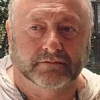Russia’s need to be recognized as a Great Power
October 30, 2015
0
comments
690
Views
Add to reader
Print
In
Log in if you are already registered
Dear Amar,
Your article fleshes out several aspects of the Syria crisis of which I was not much aware. I'm tired of the simplistic one- and two-dimensional explanations that we get from our mass media. For example: The Russians don't want to lose their naval base in Tartus. They don't want to let their ally, Assad, fall. They don't want to lose income from weapons sales to Syria. They want to embarass the Americans, etc. Your article provides a much richer explanation.
My only criticism is that the article doesn't zero in on what I think is the most powerful driver of what the Russians are doing. Being taken seriously as a major player in the international arena is of vital importance to Russia. Unlike most states, Russia has vital interests that can be defended only if it is recognized as a major player by the other major players. Putin, a black belt judoka and master strategist, is well aware that Russia's options for convincingly demonstrating its power are severely limited. He knows that Russia is punching above its weight, and that limited resources and limited public patience severely constrain the kinds of operations it can undertake.
Crimea is a good example of smart choice of venue. Nowhere else does Russia have anywhere near the aces in hand as it did in Crimea. Even considering the resulting sanctions and other significant costs, the Crimean operation can be considered a success in terms of the aim of being taken seriously. Machiavelli advised The Prince that, if possible, it is best to be both loved and feared. But if one has to choose between the two, it is better to be feared than to be loved. Russia has lost much love in the international arena because of Crimea, but it has also increased fear of Russia. Despite its high costs, it has accomplished far more in terms of bringing the Western allies to take Russia seriously than all of Russia's complaints, pleadings and protests over the preceding 22 years.
Crimea has shaken the smug confidence of the guardians of the New World Order. The U.S. and its allies can no longer confidently ignore Russia. Their leaders can no longer be sure that they know what kind of danger Russia represents, or how to deal with it. Their grotesque over-reactions to what happened in Crimea reveal how ignorant they are about today's Russia. Russia cannot do anything like its Crimea operation anywhere else in the world. No one who has taken the trouble to assess Russia's resources and limitations, along with the aspirations of its leadership can seriously argue that it will invade the Baltic states or Poland, or that it otherwise represents a danger to European security. Putin has been playing his hand carefully, keeping up the pressure, while taking pains to avoid excessive provocation.
Syria represents another one of the few theatres where Russia can leverage its power. To be sure, there is an element of risk, and the possibily of failure cannot be ruled out. But it appears that Putin is aware of the risks, and understands the restraints on both Russia and the Western powers. He knows that the US and its NATO allies are strongly averse to getting involved in a ground war in Syria, and that they are less than clear about their aims and objectives. He also knows that Russia can play a role in Syria thatt can be very useful to the US and its allies. The Russians have been holding out all kinds of olive branches. They have repeatedly made clear the aims and objectives of their mission, and they have been emphasizing that it will be very limited in time and scope.
Regardless of all other explanations of Russian aims and objectives in Syria, I think the main driver of Russian policy in Syria is to be taken seriously as a great power. In 1992, I took a group of students to Moscow for a course on Russian politics. The FSB, successor to the KGB, had just opened an office for relations with the public. I contacted them, and they agreed to meet with our group. I asked the first question: "What will be the role of your organization in the new democratic Russia." I will never forget the Colonel's answer: "The role of our organization will always be determined by the fact that Russia is a great power. Don't get me wrong. It's not that I like it. I would prefer if we could be like Switzerland, but we can't be."
This sounded absurd in the summer of 1992, a time when Russia as the rump Soviet Union, was struggling to get up off the ground. Since then, however, looking at the map, thinking about Russian history and its situation in the world today, I have come to appreciate the Colonel's remark. Not all countries need to be great powers. Not all countries need to conduct an independent foreign policy. Not even former imperial powers, like Great Britain and France, need an independent foreign policy.
But Russia does.
Share this article
OTHER RECORDS
Is Vladimir Putin a dictator or not?
September 25, 2016
Fred Eidlin
Could Putin take advantage of Europe if it starts to collapse?
September 25, 2016
Fred Eidlin




